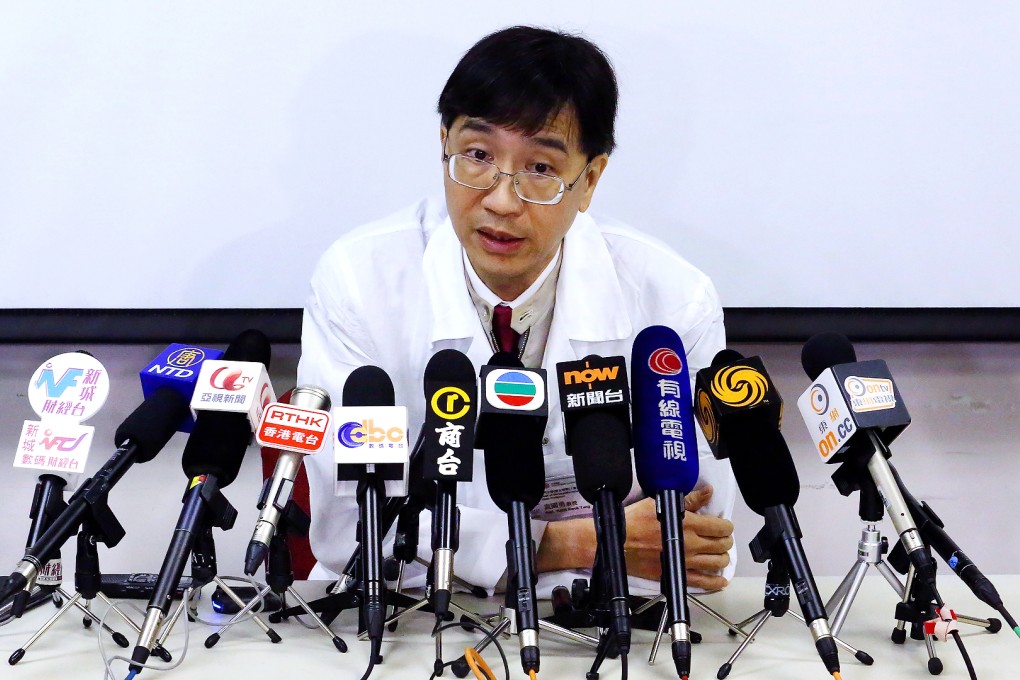Top scientist quits HKU council, warning students against 'opening door to Satan' with violence
World-renowned microbiologist in parting shots as he quits role on council

One of the city’s most respected scientists is quitting the University of Hong Kong’s governing council after condemning the violence and politics involved in the delayed appointment of a liberal scholar to a key managerial post.
Professor Yuen Kwok-yung said he quit because he was “incapable of dealing with the politics in the university council”, as HKU struggles to contain the fallout over the promotion of moderate pro-democracy scholar and former law dean Johannes Chan Man-mun to the post of pro-vice-chancellor.
Yuen’s resignation came days after an HKU council meeting descended into chaos on Tuesday, when a group of students stormed the body’s meeting room and urged councillors to stop delaying Chan’s appointment.
In a letter to the council, Yuen, who's considered a neutral party in the controversy, had a message for angry students: "Though there are injustices in the system, we will not succeed to change it by verbal and physical violence. As such actions will only bring out the darkest side of human [nature] and open the door for the intrusion by Satan."
But he also admonished the university's top brass for the first time, suggesting they were not blameless: "Nevertheless, those in power also have the primary responsibility to face the dilemma and remove these injustices."
He said his resignation was “related to many things ... Even the storming was not caused by the students themselves, it was caused by the selection of a pro-vice-chancellor”.
I might as well go back and deal with infectious diseases and mucor spores instead